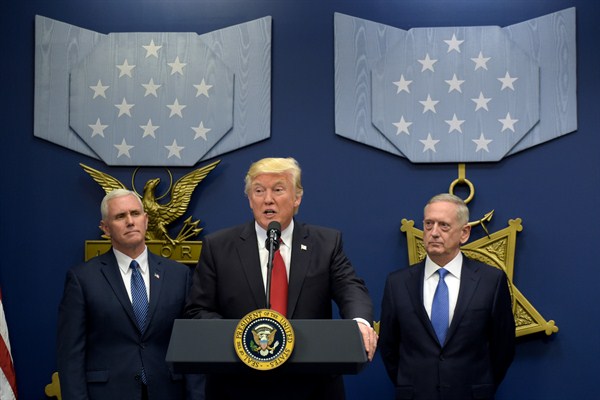For the past 18 months, foreign policy pundits have debated whether or not U.S. President Donald Trump will have a temporary or lasting impact on global politics, and in particular whether he will fatally undermine the liberal international order—the network of multilateral institutions and security guarantees the U.S. has helped build and backstop since the end of World War II. More recently, though, that debate has shifted to whether the liberal international order ever really existed, or if it was instead rhetorical window dressing used to soften the rough edges of what amounted to U.S. hegemony.
In some ways, the more recent dispute is a matter of semantics. “Liberal international order” is often a lazy shortcut used to describe the status quo by columnists and pundits who, unlike scholars and academics, have 800 words rather than 800 pages to get their argument across. But there is a real value in examining the question, because the answer can help articulate an effective critique of Trump’s management of U.S. foreign policy, and formulate an agenda for repairing the damage Trump is doing to America’s standing in the world.
To summarize their argument in broad strokes, critics of the paradigm of a liberal international order question the extent to which it was liberal, and the extent to which it was an order. As supporting evidence, they point to the spotty and inconsistent record of America’s support for political liberalism both during and after the Cold War. Though always lauded in theory, the U.S. defense of democracy was often sacrificed in practice for reasons of political expediency and cost-benefit constraints. The order this framework imposed, according to its critics, was spotty and inconsistent, too, with the U.S. ignoring its ostensible constraints as often as it respected them—most visibly perhaps in the invasion of Iraq. The same can be said of Russia in Georgia and Ukraine, and China in the South China Sea. Smaller states, too, have often flaunted the rules with relative impunity; look at Syria.

